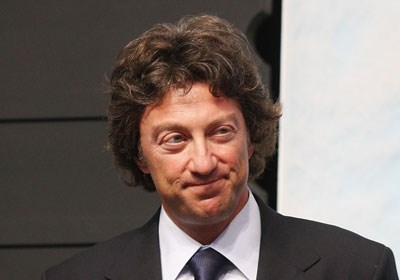
Edmonton Oilers missing in action as crucial deadline looms for new arena
October 16, 2012 - 5:03 PM
EDMONTON - With the deadline looming to resolve once and for all whether there will be a new downtown arena for the Edmonton Oilers, the mayor's office said Tuesday it had yet to hear if the Oilers will even show up to discuss it.
Officials with the NHL team, along with owner Daryl Katz, have been asked by city councillors to deliver a public accounting to them Wednesday on why they want millions of dollars more in taxpayer money for the proposed rink.
The new demands, made last month by the Oilers to an existing year-old agreement, put the arena deal in limbo, and Edmonton Mayor Stephen Mandel has said he wants the matter resolved on Wednesday.
However both Mandel and representatives from his office said late Tuesday they had not heard whether Katz or team officials will appear for the update, which would otherwise have to be delivered by city officials.
"I would hope that the presentation tomorrow with our administration would also include the Katz Group and Mr. Katz," Mandel told reporters.
A spokesman for Katz responded to an email request for information from The Canadian Press but did not say if anyone would attend.
The impasse is the latest chapter in the city's four-year saga to build the 18,400-seat rink to replace the Oilers current home, 38-year-old Rexall Place.
Katz has said he's a passionate Edmontonian who wants to keep the NHL team in the Alberta capital, but needs more money to compete in what he terms a "small market."
"The Oilers need Edmonton and Edmonton needs the Oilers. Each is an integral part of the fabric and the identity of the other," Katz told fans in full-page newspaper ads two weeks ago, apologizing for threatening to move the team to Seattle.
University of Alberta sports economist Brad Humphreys urged fans to strip away the rhetoric.
"It's the way the game is played," said Humphreys, who has authored numerous reports on sports economics and has advised the U.S. Congress on the issue.
"In the bargaining procedure you try to get it however you can get it, and part of that is coming back and making requests like, 'Oh, by the way, I'm going to need $6 million (a year) in operating expenses.'"
That $6 million is the key demand among many delivered by the Oilers to the city last month to amend the original 2011 deal.
Under the original deal, city taxpayers and ticket buyers would pay to build the arena, which was initially pegged at $450 million. But with land, borrowing and surrounding infrastructure factored in the price is now at $700 million and rising.
The Oilers would keep all profits from NHL games, trade shows, concerts and other events for 11 months out of the year. The team would also keep naming rights for the building (worth up to $3 million a year), along with $2 million a year from the city for a decade for advertising.
Concession sales alone are pegged at $20 million a year.
In return, the Oilers would pay the city $5.5 million a year for 35 years and pay to operate and run the arena, pegged at $10 million a year.
The Oilers are worth an estimated $212 million, good for middle of the pack in the NHL, and the team regularly sells out Rexall Place in a hockey mad city.
Katz, however, said the franchise is bleeding money.
Along with the $6 million, the Oilers are also reportedly seeking tax breaks and a casino licence.
Councillors rejected the new demands last month and the two sides have been sniping at one another through the media ever since, prompting Mandel to set the Wednesday deadline.
Construction had been slated to start in the spring with the arena completed in the fall of 2015.
The Oilers say the city can afford its new demands because the estimated $1.2 billion in extra money that will fill city coffers due to rising property values around the arena will actually be closer to $2 billion.
That money would come in under a specially designated community revitalization levy, or CRL.
"The CRL is going to be double in value relative to what it was supposed to be," Katz told The Edmonton Journal in an interview Sept. 17.
Humphreys said it's a phantom argument.
"The CRL has become this giant pinata of economic benefits that everybody should get a crack at when a shovel hasn't been put in the ground and we don't know what kind of property increases there might be," he said.
Humphreys and Scott Hennig of the Canadian Taxpayers Federation also said while arena districts can produce more cash, it's not new money. Rather it's money redirected from somewhere else. In other words, more new bars downtown doesn't mean more drinkers. It just means the existing number of drinkers stop drinking at one place and drink somewhere else.
"It creates economic activity, but that economic activity has just been moved around from some other place in the city," said Humphreys.
"It's not new economic activity. What an arena does is it concentrates economic activity at a specific place at a specific time."
Hennig agreed.
"The CRL is a shell game at best," he said.
"Daryl Katz should know better, and he probably does. He's playing on the council's fear of losing a hockey team here, which is completely unfounded."
Humphreys said fans and politicians who don't like what is happening need to look in the mirror.
"I can't blame the Katz Group for trying to do this because these are the ground rules we've sort of laid out as a matter of public policy in North America," he said.
"We're going to let these guys operate as monopolists, and they're going to do what they can to exercise that monopoly power."
News from © The Canadian Press, 2012